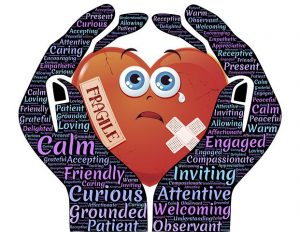“The highest function of education is to bring about an integrated individual who is capable of dealing with life as a whole” — Amy Burke
Teaching mindfulness is an essential component, as I see the relations to the Core Competencies which is an invaluable part of the B.C. curriculum.
The Core Competency skills is to help students harness skills that allow them to gain self-awareness and to be socially responsible. Mindfulness then becomes prerequisite skills that transcend the practical skills that are relatable to their daily life.
Mindful ness not only helps students with self-awareness, self-regulation, decision making but also promotes resiliency, self-agency and most importantly, to have the sense of “noticing” on self. Enabling students to be reflexive at the moment with situations and people allowing them to self-readjust to build positive meaningful relationships with people and taking charge of a situation. Practicing the skill of mindfulness will lead students to feel more empowered as they feel confident and in control of their lives. As students learn to navigate their way through relationship building and maintaining relationships, students will benefit from mindfulness strategies because it will ease anxiety, decrease peer conflict and develop diplomatic, social skills.
ness not only helps students with self-awareness, self-regulation, decision making but also promotes resiliency, self-agency and most importantly, to have the sense of “noticing” on self. Enabling students to be reflexive at the moment with situations and people allowing them to self-readjust to build positive meaningful relationships with people and taking charge of a situation. Practicing the skill of mindfulness will lead students to feel more empowered as they feel confident and in control of their lives. As students learn to navigate their way through relationship building and maintaining relationships, students will benefit from mindfulness strategies because it will ease anxiety, decrease peer conflict and develop diplomatic, social skills.
Some of the mindfulness strategies used by teachers are the Mindup Mindfulness curriculum (Mindup, 2020). iPad applications are also installed for students such as ‘headspace’ and ‘calm’ used and are integrated into classroom schedules as a regular practice but still, I personally feel mindfulness does not practice enough for its maximum benefit.
While mindfulness has many benefits for most people, we also have to be cautious forging mindfulness strategies or programs around children that have post-trauma experience because it could do more harm than good (Treleaven, 2018).